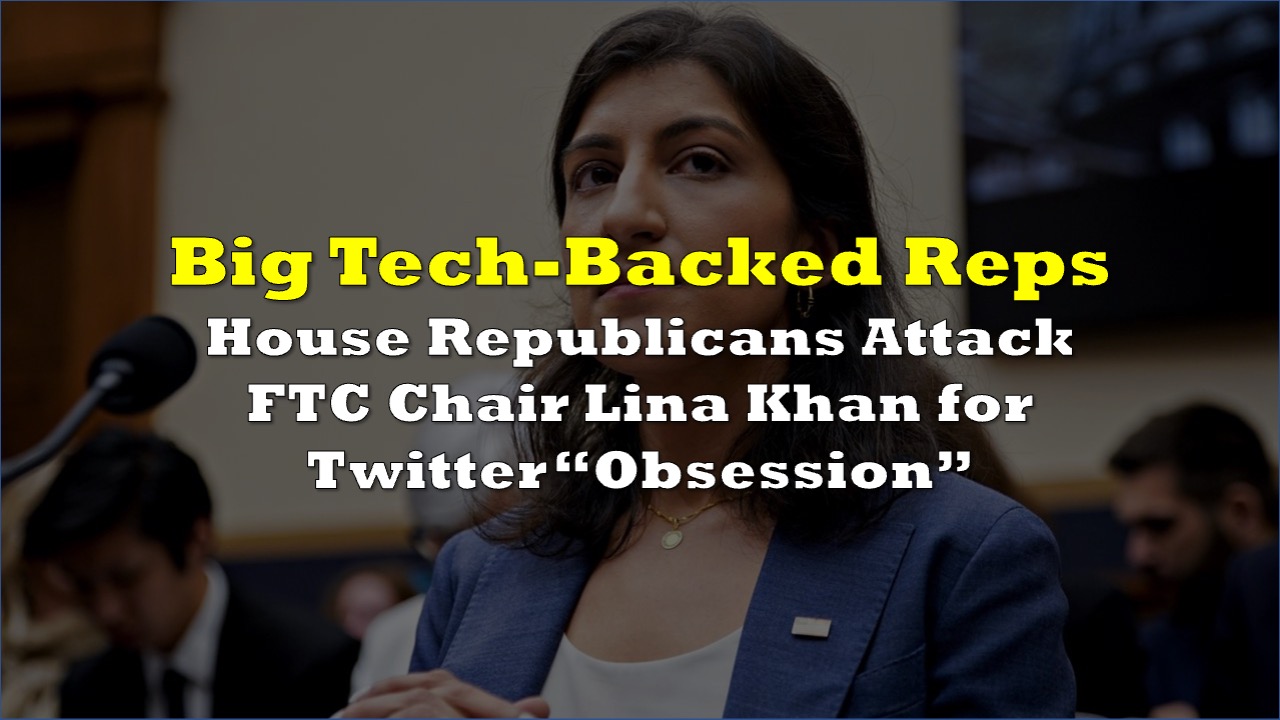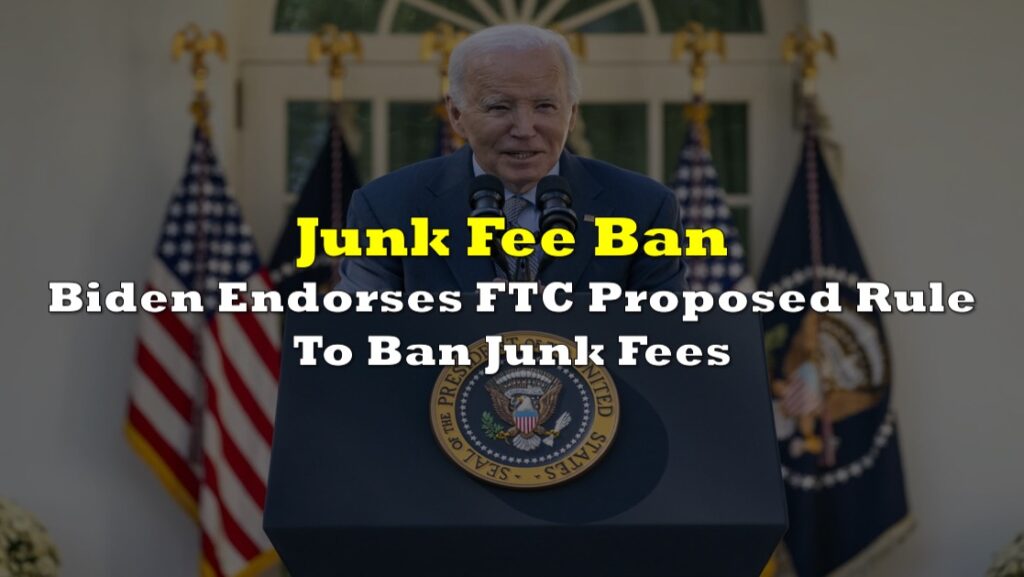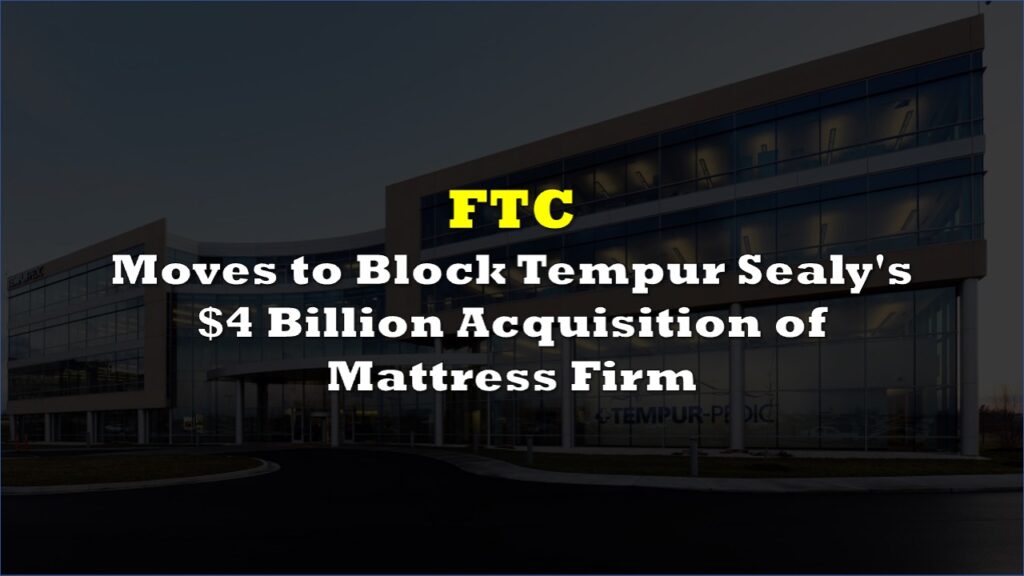The chair of the Federal Trade Commission (FTC), Lina Khan, defended the agency’s aggressive legal strategy against major technology companies during a hearing on Thursday.
House Republicans criticized Khan, accusing her of “harassing” Twitter following its acquisition by Elon Musk and filing arbitrary lawsuits against large tech firms. They also questioned her refusal to recuse herself from certain cases. Khan countered the criticism by arguing that increased regulation is necessary to prevent tech consolidation, which could harm the economy and consumers.
“Our competition mission is driven by the tenet that vigorous antitrust enforcement is critical to the growth and dynamism of our economy, as well as to our shared prosperity and liberty,” the FTC chair said. “Recent decades, however, have vividly illustrated how Americans lose out when markets become more consolidated and less competitive.”
The hearing took place amidst the FTC’s ongoing legal battles against technology companies. Recently, the agency suffered a setback when a federal judge declined to block Microsoft’s (NASDAQ: MSFT) $69 billion acquisition of video game company Activision Blizzard (NASDAQ: ATVI). The judge stated that the deal deserved scrutiny but the FTC failed to demonstrate significant harm to competition.
The FTC is appealing the ruling. In a similar case earlier this year, another judge rejected the FTC’s attempt to halt Meta Platforms’s (NASDAQ: META) acquisition of virtual reality fitness company Within Unlimited.
Insanely illegal overreach by FTC
— Elon Musk (@elonmusk) July 13, 2023
Republicans focused on the FTC’s track record in antitrust cases, questioning the agency’s aggressive regulatory approach and its potential adverse effects on small businesses. Republican Representative Darrell Issa criticized the agency’s shift since Khan assumed leadership, while Representative Kevin Kiley asked Khan if the agency was intentionally losing cases to influence Congress to update antitrust laws. Khan denied the accusation but acknowledged that not all outcomes favored the agency.
House Judiciary Committee Chairman Jim Jordan raised concerns about the FTC’s scrutiny of Twitter, characterizing it as an “obsession.” Khan justified the investigation by pointing to Twitter’s security and privacy lapses, noting that the agency had been monitoring the company since a 2011 consent order. Twitter, now under parent company X Corp., filed a motion to end the consent order, accusing the investigation of bias and being out of control.
Throughout the hearing, Democrats defended Khan’s work, emphasizing the importance of her mission. Khan, a known tech critic, assumed the FTC chair position in 2021, signaling the Biden administration’s intention to take a tough stance on technology companies. Her academic work and experience on the Judiciary Committee’s antitrust subcommittee have shaped her expertise and approach to antitrust law.
Big Tech Power
The House Republicans’ aggression toward Khan has been an ongoing theme since she began her tenure two years ago. Interestingly, these Republicans have also been known to receive donations from big tech companies through PACs and lobbyists.
A recent report from More Perfect Union describes how Big Tech has leveraged these legislators to attack Khan and her accusations of anti-competitive practices. The report claims that these big tech companies, including Alphabet (Nasdaq: GOOGL), Amazon (Nasdaq: AMZN), Apple (Nasdaq: AAPL), Meta (Nasdaq: META), and Microsoft (Nasdaq: MSFT), have contributed at least $400,000 to the PACs and employees of Republicans on the panel, with 11 of them directly receiving donations from company lobbyists or executives.
Jordan, who in April subpoenaed the FTC for documents related to Musk’s Twitter takeover, has received significant campaign contributions from Big Tech, including at least $10,000 from Google NetPAC in 2020. Issa, on the other hand, has received substantial donations from employees and PACs of tech giants, including $76,000 from Microsoft. Even new committee member and freshman legislator Rep. Laurel Lee reportedly received campaign donations from Google’s PAC after winning the midterm election for Florida’s Fifteenth Congressional District.
The anti-monopoly group American Economic Liberties Project found that the Wall Street Journal has reportedly published over 69 critical articles, editorials, and letters targeting Khan since 2021. They collated the articles into a list that can be found here.
Information for this story was found via More Perfect Union, American Economic Liberties Project, and the sources and companies mentioned. The author has no securities or affiliations related to the organizations discussed. Not a recommendation to buy or sell. Always do additional research and consult a professional before purchasing a security. The author holds no licenses.









